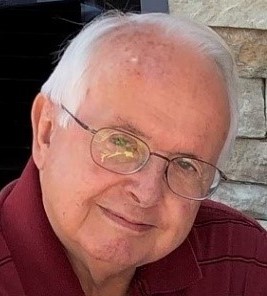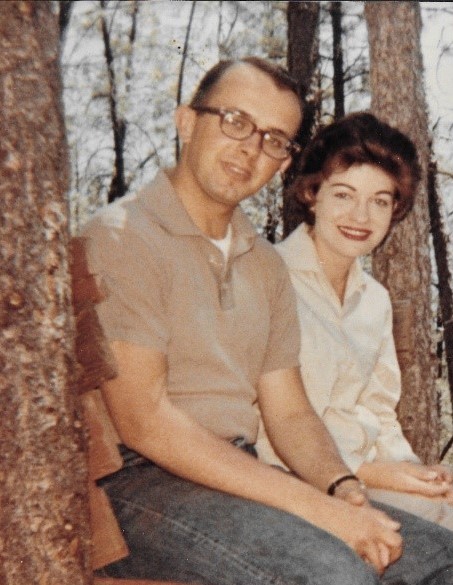AARP Hearing Center

Editors note: Dr. Stu Ervay is a member of the AARP Kansas Executive Council and a volunteer for AARP Kansas. In this blog, he shares his experiences as the husband of his wife of 58 years who has been diagnosed with Alzheimers. A new blog post will be added each Friday.
My father was my role model for being a good provider, handyman, mechanic, and creative inventor. He also often reflected on what could be.
His idea of raising sons was to keep us involved in interesting and even challenging projects. Dad often started building something in our little shop and then let us continue working on it after he went to work, using our own ideas.
He taught us how to think. In many ways he was a downhome example of what George Bernard Shaw said: “Some see things as they are and ask why. Others dream things that never were and ask why not.”
Dad believed society and how we relate to one another could stand improvement. It went beyond mere interest or enthusiasm. It was a total passion of his. And I became imbued with a similar passion.
Dad was not talented in explaining the birds and bees. We had no sister. Girls to us were kind of alien versions of ourselves who lived in another social universe. It was the 1950s and our passions and their passions were like ships passing in the night.
Dad said our attitudes would change when we grew into our later teens.
He was right of course. In my junior and senior years of high school I experienced an attitude adjustment when it came to girls. Just a biologically inevitable condition.
One day during my teens Dad began to wax philosophical about my future. He assumed I would be looking around for a wife soon. No, at that time girls were just pleasant diversions in which there was no crossover of fundamental interests.
He said that would change, especially as I matured and started dating women of substance and conviction. He went on to say the glue that binds a man and woman together is as much an outwardly directed passion as the physical and emotional passion we feel for each other.
I was commissioned as an army officer upon graduation from college. While in the army I met a woman of substance and conviction. We talked, and talked some more, about what we could contribute to make our world a better place.
The crossover was our common interest in education. Education was our platform for service.
I was enthralled but also nervous. She was about to graduate from a small prestigious college in Texas. She was the daughter of a successful business executive and decorated military commander in World War 2. I was just the product of a lower middle-class home, graduate of a public university, and junior army officer.
But, as it turned out, that cultural disparity didn’t bother her or her family at all. My family was a little intimidated, but greatly appreciated the burgeoning opportunities for service our familial connections would encourage.
Dad was right. It was the outwardly directed passion we shared that showed through everything else. We eventually created a plan for our lives together and pledged ourselves to do all we could to achieve the goals associated with that plan. Naturally, as the years sped by, the plan sometimes changed shape a little. But our fundamental beliefs and aspirations stayed the same.

Fast forward to the present.
Any legacy I leave is hers too. Two magnificent sons who, because of their powers of discernment, married wonderful women. Three grandchildren who are all accomplished in their own ways. A church denomination that now encourages and celebrates the leadership of women. Public school students (especially women) who have grown into stable and contributing adults. And public schools that are now structured to do a better job of comprehensively and authentically preparing students for a world of possibilities.
All of that came from OUR passion to make a difference.
Alzheimer’s was not part of our plan. It has done more than just change the plan’s shape. Eradicated is a better description.
But the legacy remains.
How does that song from the movie Camelot go? “Don't let it be forgot that once there was a spot, for one brief shining moment, that was known as Camelot.” Camelot died because human passions went haywire. Our Camelot died because of Alzheimer’s.
But the memory of our mutually felt passion remains strong and somehow carries me through.
What are some of your passions that have been sidelined by Alzheimer’s? Follow me at stuervay.com for more posts about Husbands and the Alzheimer’s journey.
©2020 Stu Ervay - All Rights Reserved
Stu is a retired university professor and consultant to public schools. Prior to his work in higher education, he served as a unit commander in the United States Army, and taught history and government in secondary schools. Since retirement he has written journal articles and a book on school improvement. He is now a state AARP volunteer leader. His wife, Barbara, is also a retired educator. In addition to many years of teaching middle school science, she played a significant role as an advocate for women in church leadership.































































